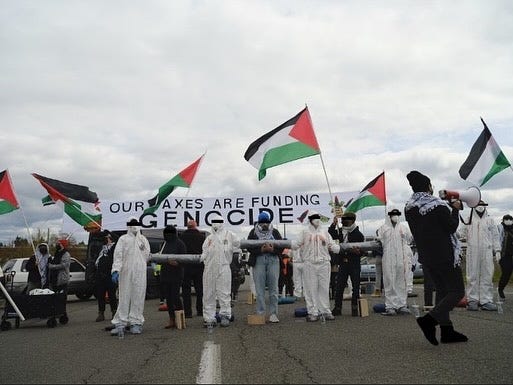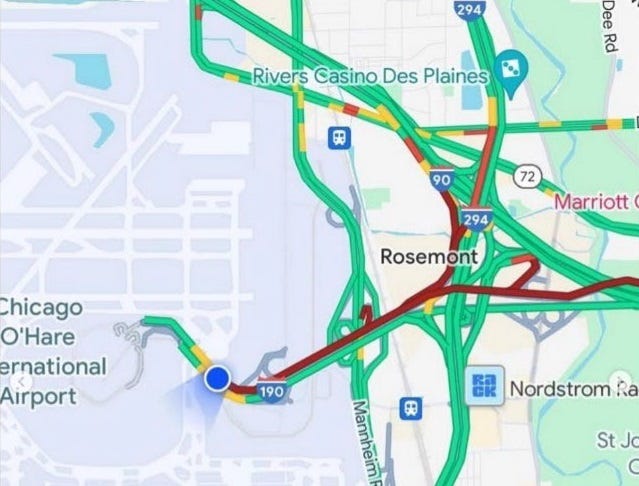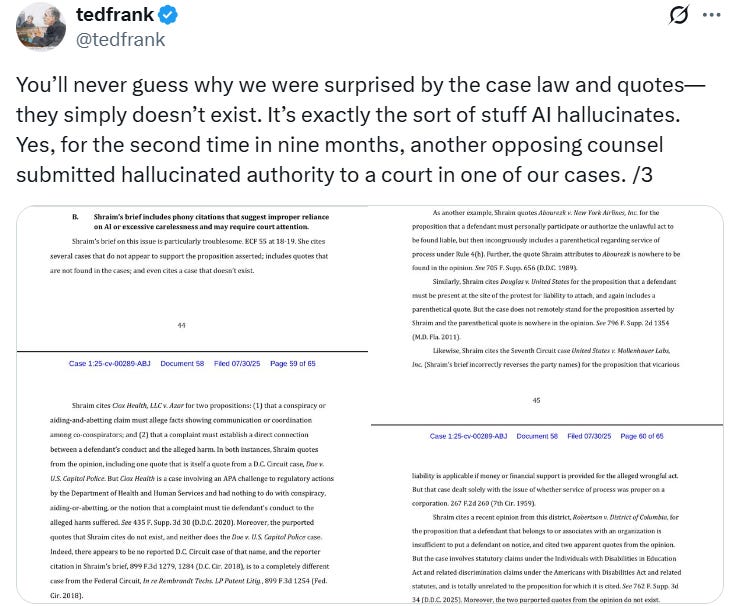Anti-Israel Activist Who Blocked Highways Uses AI-Generated Lawsuits to Defend Case
This marked the second time, noted Ted Frank, Director of Litigation at Hamilton Lincoln Law Institute, that “another opposing counsel submitted hallucinated authority to a court in one of our cases”

In April 2024, pro‑Palestinian groups, including Jewish Voice for Peace (JVP) and Students for Justice in Palestine (SJP), organized demonstrations that blocked major transportation hubs across the United States. The protests were part of the larger "A15 Day of Action," a coordinated initiative to disrupt key airports and highways across the country.
In response, Hamilton Lincoln Law Institute (HLLI) filed lawsuits on behalf of affected individuals. In Manhart v. National Students for Justice in Palestine, HLLI sued activists for obstructing access to O'Hare Airport, resulting in extensive delays and inconveniencing travelers. Similarly, in Faoro v. Jewish Voice for Peace, HLLI took legal action against organizations like JVP, Dissenters, and the Palestinian Youth Movement, who were involved in blocking streets and disrupting daily life in Washington, D.C.

In the course of the Faoro litigation, HLLI attorneys discovered an interesting development when reviewing motions to dismiss. According to Ted Frank, Director of Litigation at HLLI, “Counsel for one of the civil terrorist defendants and her NGO made arguments quoting cases we hadn’t seen. Did we miss something?” Upon closer inspection, Frank and his team found that “the case law and quotes—they simply don’t exist. It’s exactly the sort of stuff AI hallucinates.”
This marked the second time in nine months, Frank noted, that “another opposing counsel submitted hallucinated authority to a court in one of our cases.”

JVP's Legal Troubles
JVP's involvement in the O'Hare blockade is not the organization's only brush with legal trouble. In addition to its role in political protests, JVP has been at the center of several controversies, including financial mismanagement and illegal activities.
In 2025, JVP settled a case involving fraudulent Paycheck Protection Program (PPP) loan applications. The organization agreed to pay a settlement of $677,634 after the U.S. Department of Justice accused it of misrepresenting its operations to receive government relief funds. This settlement raised questions about the group’s transparency and financial practices.
JVP is also under scrutiny for its increasing involvement in disruptive protests, including activities described by authorities as unauthorized entries and occupations of both public and private space. Critics argue that its aggressive tactics, including road blockades and mass demonstrations, not only undermine public safety but also alienate potential supporters who may agree with the cause but disapprove of the methods.
Upholding Public Order
HLLI's lawsuits argue that while the right to protest is fundamental, it cannot come at the cost of public safety or the rights of others. The organization asserts that such actions, particularly the blocking of critical infrastructure, violate individuals' rights to free movement and disrupt public order.
The Faoro v. Jewish Voice for Peace case highlights how legal action can be used to address disruptions caused by political protests. The lawsuit claims that these groups intentionally obstructed traffic, leading to unnecessary chaos.
Critics argue that while the right to protest is fundamental, it should not be used as a tool for civil disobedience that harms public safety. The call for legal reform underscores the need for an approach that protects both free expression and public order.
By holding groups like Jewish Voice for Peace and Students for Justice in Palestine accountable, these legal actions emphasize that the rule of law must prevail, even in the face of activism. As these cases unfold, they serve as a reminder that the law protects not only the right to protest but also the public’s right to safety and order.
Editors' Note: An earlier version of this article incorrectly claimed that counsel for JVP and SJP had cited AI-generated lawsuits that were nonexistent. This has been corrected, as it was actually the counsel for one of the defendants who partook in the mass blockade who made this claim, not JVP and SJP. We regret the error.



